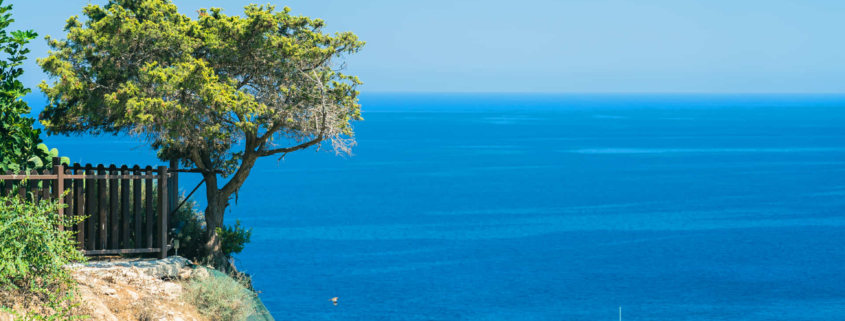A new WestMED Technical group on Sustainable Tourism
Towards a more sustainable tourism model
The popularity of the Mediterranean Sea and its coastal regions amongst tourists remains at an all-time high. After a temporary covid dip, the latest figures show that numbers of tourists have already reached pre-pandemic levels and are further on the rise. Traditional ‘sun, sea, and sand’ tourism has boosted livelihoods and constitutes 11.5% of total employment in Mediterranean countries, making it a key economic sector.
However, it exerts significant environmental pressure, causing pollution, uncontrolled coastal development, and increased demand for water, food, and energy. Combined with rising temperatures, this makes the current model unsustainable in the long term. Additionally, these same pressures might, in the medium-long run, have the paradoxical effect of lowering the attractiveness of tourist destinations in the Mediterranean.
For the Western Mediterranean, as stated in the WestMED Malta Ministerial Declaration (2023), one of the key goals of the WestMED Initiative is to ‘strengthen the competitiveness and sustainability of the coastal and maritime tourism sector, as part of a smart and resilient blue economy. This, by preserving the marine and coastal environment as well as marine cultural heritage and contributing to the attractiveness of coastal areas by means of ecotourism, digitalization and mobilizing private-public investments.’
Given the fact that tourism plays such a significant role in the Western Mediterranean as one of the key contributors to both the upside gains as well as the downside risks of the blue economy, there is an urgent need for enhancing eco-tourism in the region.
Launching a new technical group on sustainable tourism in the western Mediterranean and beyond
The new technical group has been officially approved by the members of the WestMED Steering Committee in July 2024. The overall objective of the Sustainable Tourism TG within the WestMED Initiative is to serve as a technical forum to discuss trends and opportunities towards sustainable tourism within the region and to provide support to participants to develop project ideas around the topics already set at EU level with regards to the tourism-related topics of green transition, digitalization, promotion of social inclusion, governance, and skills.
The technical group, led by the Spanish and Maltese National Hubs, are planning a series of webinars after the Summer of 2024, while the official launch of the technical group will take place during the Sun&Blue Congress (20-22 November 2024, Almería, Spain).
The technical group will be constituted by 3 subgroups:
1) A core group, with national members assigned by the WestMED National Coordinators
2) An advisory group, with relevant stakeholders that are also involved in steering various tourism initiatives, networks, funding opportunities, etc.
3) An expert group, where all other remaining stakeholders from the tourism industry will be invited to take part to develop project ideas and concrete proposals.
A call for experts will be launched soon so stay tuned and follow us on X (Twitter) for the latest updates!
The role of the WestMED Technical Groups on supporting blue economy in the Mediterranean
Since 2020, four additional technical/thematic groups have been established within the WestMED Initiative. Current and future maritime developments and challenges are being discussed with lead stakeholders and high-level representatives from the participating countries under the guidance of WestMED Assistance Mechanism, with a focus on concrete actions and projects development.
- Technical Group on Green Shipping in 2020, to support the adaptation of vessels and their transitioning towards fully sustainable sources of fuel/energy, and the transformation of green ports into “circular hubs” for sustainable energy production and consumption.
- Technical Group on aquaculture – Aquawest – in 2021, to support the adoption of innovative, eco-compatible sustainable and restorative aquaculture practices, and the needs and opportunities of the Southern countries to benefit from it.
- Alliance of Maritime Clusters, in 2021, to accelerate cooperation and joint actions under intersectoral dialogue, to boost the development of southern clusters, to upgrade management skills, and to provide a platform for investments in innovative SMEs.
- A Community of Practice on Maritime Spatial Planning (MSP) in the MED, in 2023, to establish a permanent dialogue across borders between experts on MSP, and exchange knowledge and relevant experiences in the region.
More information can be found at: https://westmed-initiative.ec.europa.eu/assistance-mechanism/#thematic-groups


